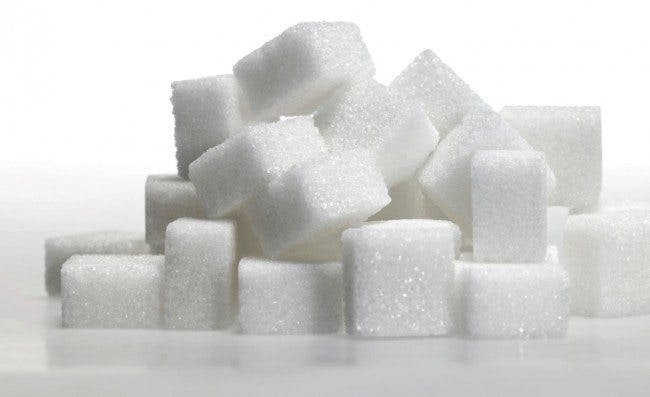WHO recommends cutting sugar intake in half!

Upper limit of sugar consumption for a week?
Big news today, the war on sugar is heating up. The World Health Organization is planning new dietary guidelines, where the proposed recommendation is to cut sugar intake in half!
The old upper limit of 10 percent sugar intake of total energy intake per day will remain, but WHO says that a further lowering of the limit to 5 percent will provide more health benefits (for example in controlling weight gain and dental caries).
The new goal of 5 percent corresponds to an upper limit of about 25 gram (or six teaspoons) added sugar daily. This is less than the amount of sugar in a can of Coke (33 centiliter).
An average sugar consumption of 10 percent of total energy intake – like in Sweden where I live – means that about half the population consumes more than the previously recommended upper limit and more than twice as much as the new upper limit.
Most people on an LCHF diet will no doubt keep well below the new target by a large margin.
- Fox News: WHO cuts sugar intake recommendation in half
- BBC: WHO: Daily sugar intake “should be halved”
- MailOnline: People should cut their sugar intake to just six teaspoons a day, says World Health Organisation
It remains to be seen whether the WHO new draft guidelines will survive a massive campaign from well-funded sugar-lobbyists. Let’s hope so!
Let’s also hope that governments issuing dietary guidelines will embrace new science and lower their recommendations.
More
Is There a Safe Amount of Sugar?